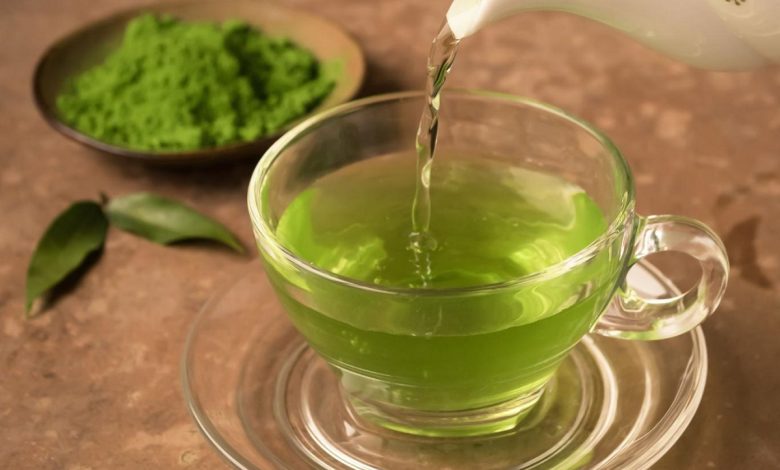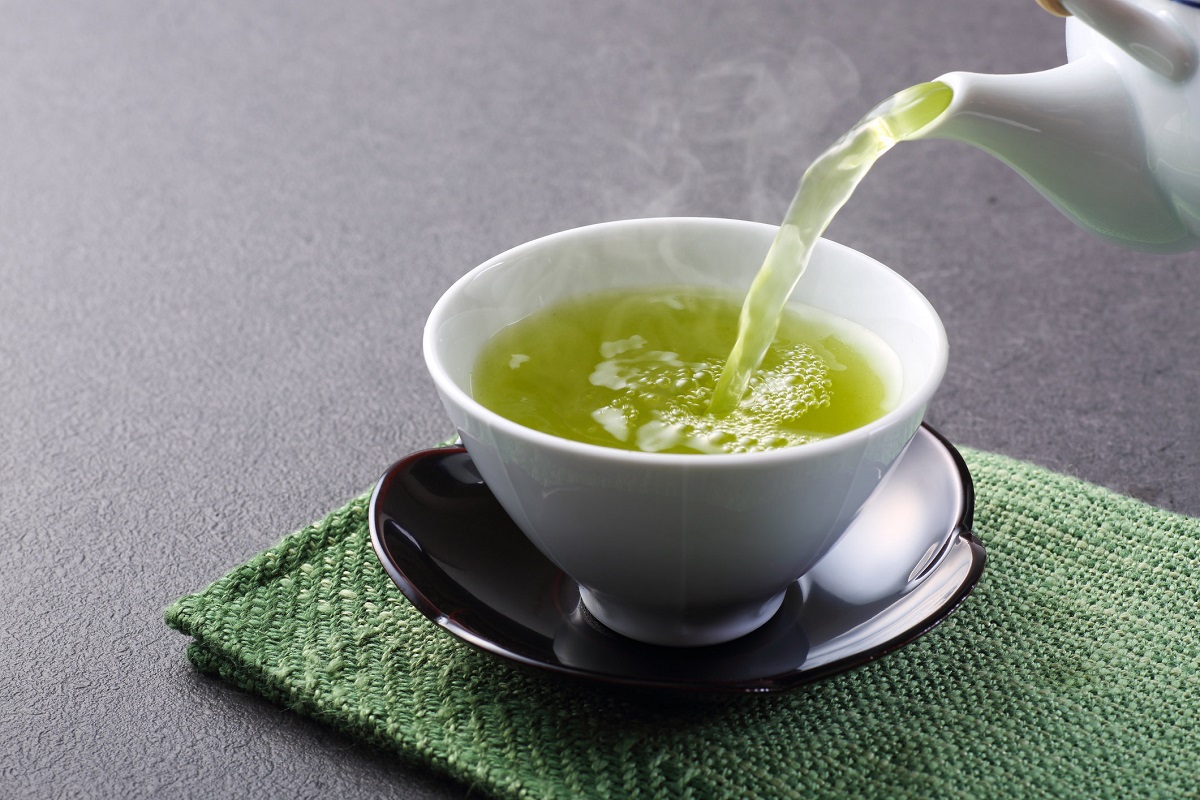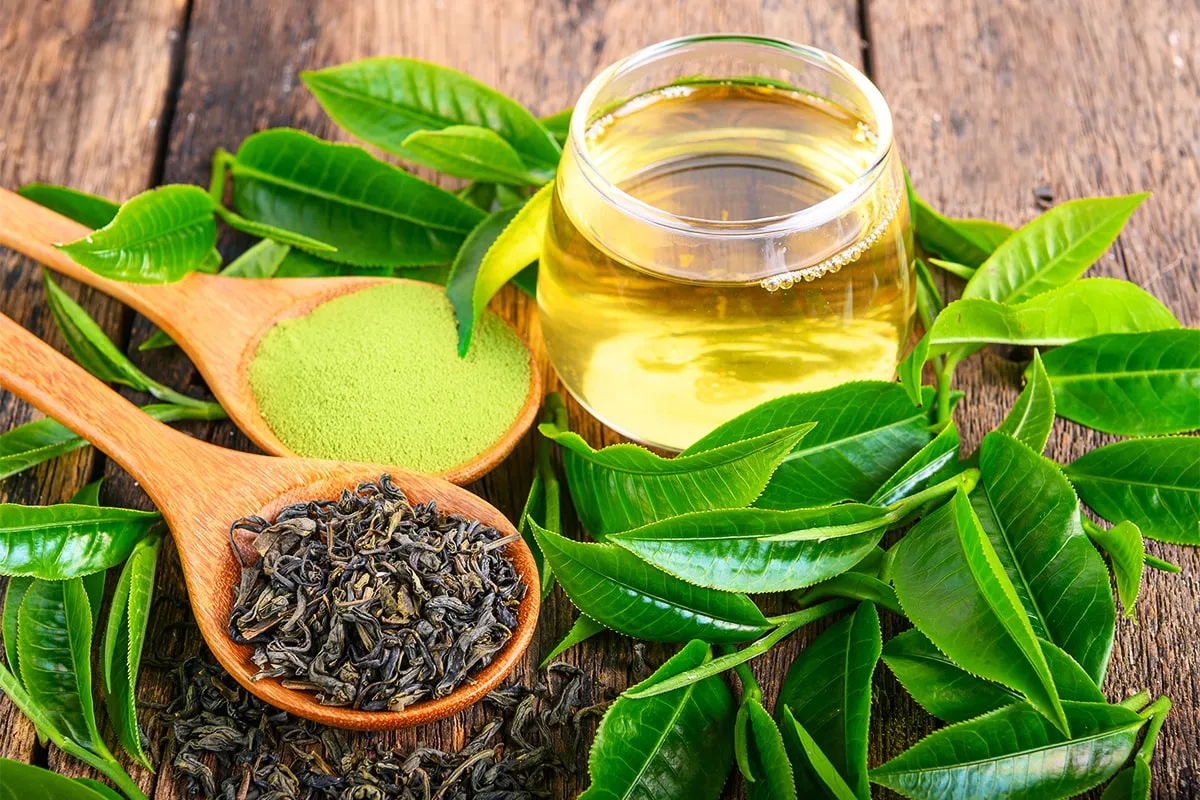Time Magazine: Green Tea Is More Beneficial Than You Think

Time Magazine: Unique Green Tea Leaves Contain More “Catechins” Than Any Other Drink or Food.
Tea, after water, is the most consumed beverage in the world, and for good reason: tea, especially green tea, is incredibly beneficial for health.
Time Magazine, Some benefits of green tea are well-established, while others still require more research. For example, influencers on social media sometimes refer to green tea as a “natural Ozempic,” claiming it is as effective as weight-loss medications, a claim that researchers, despite acknowledging green tea’s advantages, consider exaggerated.
Time magazine has explored some scientific findings about green tea’s role in combating obesity and diabetes, enhancing heart and brain health, and fighting cancer.
Time Magazine
Green Tea: A Nutritional Miracle

Time Magazine, Green tea leaves are unique because they contain more catechins—a compound that protects cells from age-related damage—than any other beverage or food.
Unlike black tea and oolong, which undergo fermentation during preparation that reduces catechins, green tea undergoes minimal processing, making it a healthier option.
Time Magazine, Laura Acosta, an associate professor of nutrition education at the University of Florida who researches green tea, states, “Green tea contains several types of catechins, but one, called EGCG (Epigallocatechin gallate), is the most potent compound for protecting cells and fighting inflammation, making green tea special.”
How To Drink Green Tea
Time Magazine, Acosta notes that freshly brewed green tea contains more EGCG than pre-made or powdered versions. The EGCG content in green tea can vary from two to 200 milligrams per serving.
She recommends choosing green tea powders labeled as containing EGCG and consuming them quickly after purchase. Powders stored on shelves for more than six months lose 30 to 50 percent of their catechins, reducing their health benefits.
Time Magazine, Experts advise consuming two to four cups of green tea daily, depending on your caffeine sensitivity. Drinking more than five cups can diminish its health benefits. Additionally, to maximize these benefits, green tea should be consumed long-term—over years, not just days—as the effects accumulate over time.
Green Tea’s Impact On Obesity
Time Magazine, Experts emphasize that green tea cannot replace obesity medications like Ozempic, as studies show green tea’s effect on the GLP-1 hormone, which regulates satiety and lowers blood sugar, is not as significant as some social media claims suggest. In fact, no meaningful difference was observed between groups that drank green tea and those that didn’t in this regard.
A 2017 research review also found no evidence of green tea’s impact on blood sugar levels. However, some experts suggest that green tea may reduce carbohydrate absorption, thereby lowering blood sugar levels. Some studies have also reported the potential for catechins in green tea to aid in satiety and weight loss, but researcher’s stress that more comprehensive studies are needed in this area.
Time Magazine, Additionally, the high EGCG doses found in green tea extract pills can harm the liver. Therefore, it’s recommended to drink green tea itself and limit intake to a few cups a day. Overconsumption may cause nausea or acid reflux.
Preventing Heart Disease

Time Magazine, Regular consumption of green tea promotes heart health. Part of this effect is attributed to lowering blood pressure. It can also reduce bad cholesterol and increase good cholesterol, contributing to the prevention of heart disease.
Most human studies show that only five percent of green tea catechins enter the bloodstream. It is suggested to combine green tea with sources of vitamin C, such as lemon or berries, to enhance absorption.
Protecting Brain Health
Drinking green tea is linked to a reduced risk of developing Alzheimer’s and Parkinson’s diseases, helping to maintain brain health. The caffeine in green tea can also be particularly beneficial for maintaining mental sharpness.
Fighting Cancer
Time Magazine, Laboratory research shows that EGCG can block pathways associated with tumor formation. Some studies have also found that high doses of green tea may cause cancer cells to die, but more research is needed to confirm these effects. Experts believe this is likely due to green tea’s antioxidant properties, which help reduce inflammation.
However, some studies have also suggested that antioxidants, including those found in green tea, may interfere with certain cancer treatments like chemotherapy and radiation therapy.
Also Read:
The 10 Best Home Remedies For Common Autumn Illnesses
Excessive Consumption Of Oats And Bananas Could Lead To Type 1 Diabetes In Children
Healthy Meals For Workers: Boosting Energy And Productivity
Benefits Of Sesame Seeds: Why Should Sesame Seeds Be Added To Your Diet?




